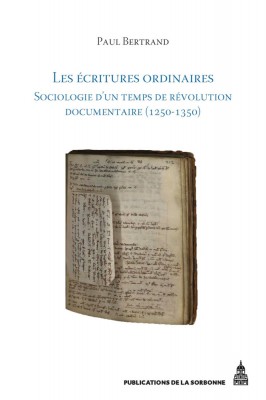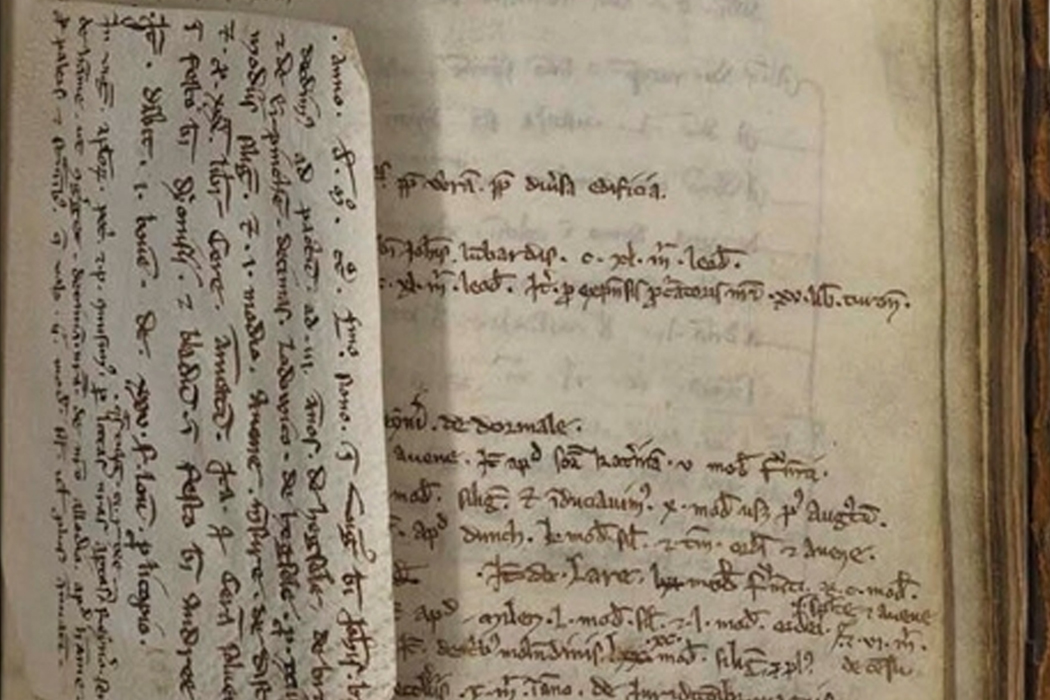In 1979 Michael Clanchy published his seminal study of literacy in the Middle Ages, later revised and expanded in 1993 and 2013. This has now been followed up by a book by Paul Bertrand about “Ordinary Writing” in Northern France and Flanders in the long 13th century.
Les écritures ordinaires
By Paul Bertrand
Publications de la Sorbonne 2015
ISSN 02904500
ABSTRACT:
 From 1294 and onwards the cleric Thierry d’Hireçon functioned as administrator for Robert II and later his daughter Mathilde, countess of d’Artois (Mahaut d’ Artois). In this capacity he collected charters, annotations, comments and other pieces of writing registering the agricultural output and general economy and created a series of inventories accompanied with fascinating accounts. The plan was to centralise and control the administration and maximise the profit by technological and administrative innovations. To aid and abet in this venture he obviously made extensive use of written records. Through his preserved records it becomes possible to see how writing in this period became both ordinary and banal, writes Paul Bertrand in the introduction to his new book on Les écritures ordinaires.
From 1294 and onwards the cleric Thierry d’Hireçon functioned as administrator for Robert II and later his daughter Mathilde, countess of d’Artois (Mahaut d’ Artois). In this capacity he collected charters, annotations, comments and other pieces of writing registering the agricultural output and general economy and created a series of inventories accompanied with fascinating accounts. The plan was to centralise and control the administration and maximise the profit by technological and administrative innovations. To aid and abet in this venture he obviously made extensive use of written records. Through his preserved records it becomes possible to see how writing in this period became both ordinary and banal, writes Paul Bertrand in the introduction to his new book on Les écritures ordinaires.
To his book, Michael T. Clanchy has very generously written a preface, and in the introduction we are told that it is meant as a homage of the seminal work carried out by the English historian in the 80s. However, Paul Bertrand has carried his work a step further and offers a very detailed study of the use of day-to-day writing in northern France and the southern Netherlands in the long 13th century.
The book aims to identify the outline of a key moment in the great documentary revolution that transformed the Middle Ages. Strongly supported by exploration of preserved codices, he derives the development in the use of writing to the general transformations of the medieval society in this period. This is not a cultural history, but a social history, he writes in the introduction. New needs for documentation and speedily transactions gave birth to all sorts and forms of adaptation, accumulation, compilation and data abbreviation and standardisation. Increasingly invested with legal value, documents became in themselves carriers of authority while their role as witnesses to the acts whereby authority was wielded, diminished. At the same time widespread literacy caused writing to become less formal or rigid crating a multitude of different types of writing and formats of written texts and books.
READ MORE:
From Memory to Written Record
By Michael T. Clanchy
Wiley-Blackwell. 3rd Edition 2012
ISBN-10: 1405157917
ISBN-13: 978-1405157919
